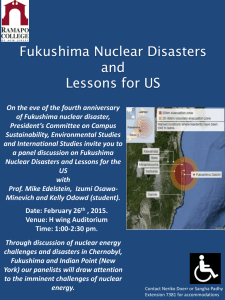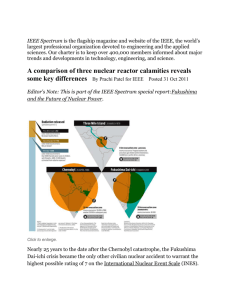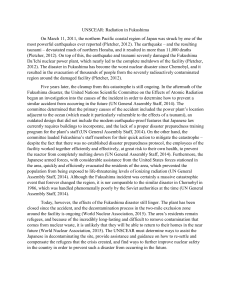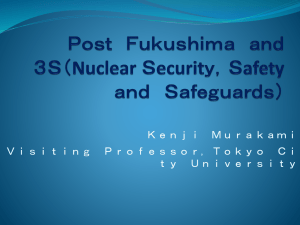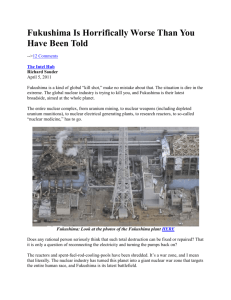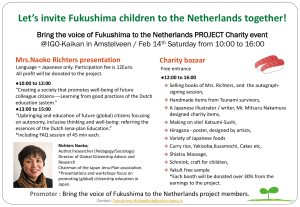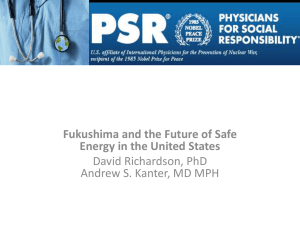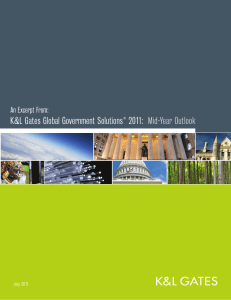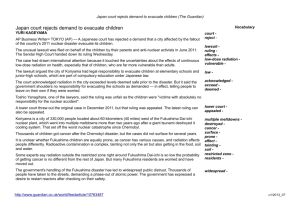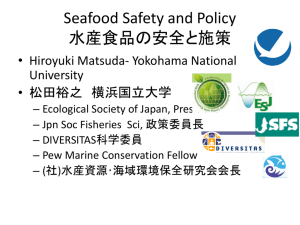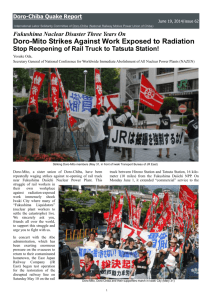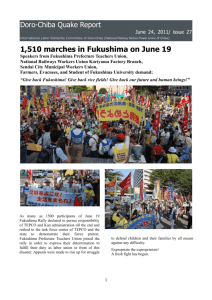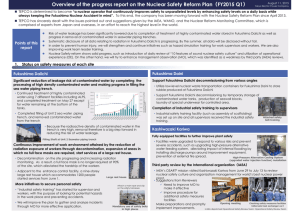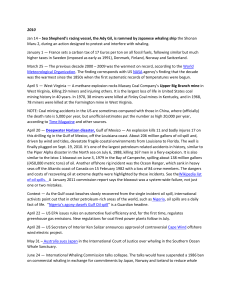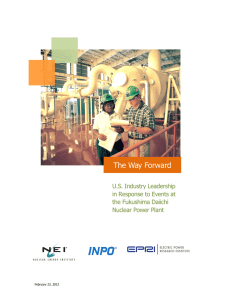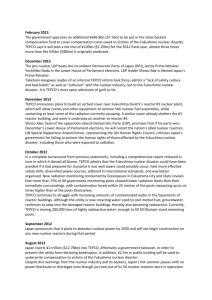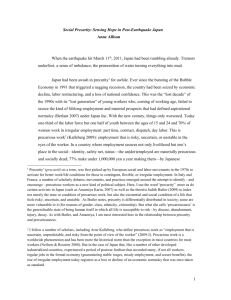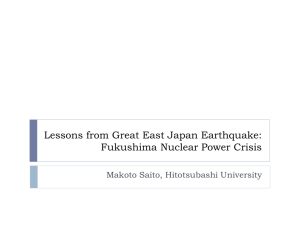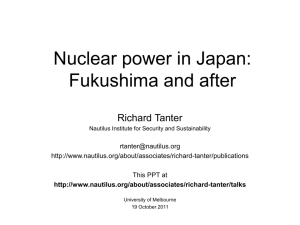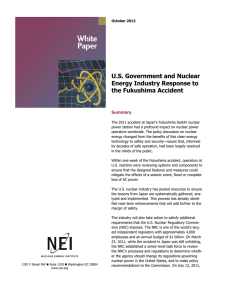Johan Galtung: FUKUSHIMA 3/11 - A TURNING POINT? 06
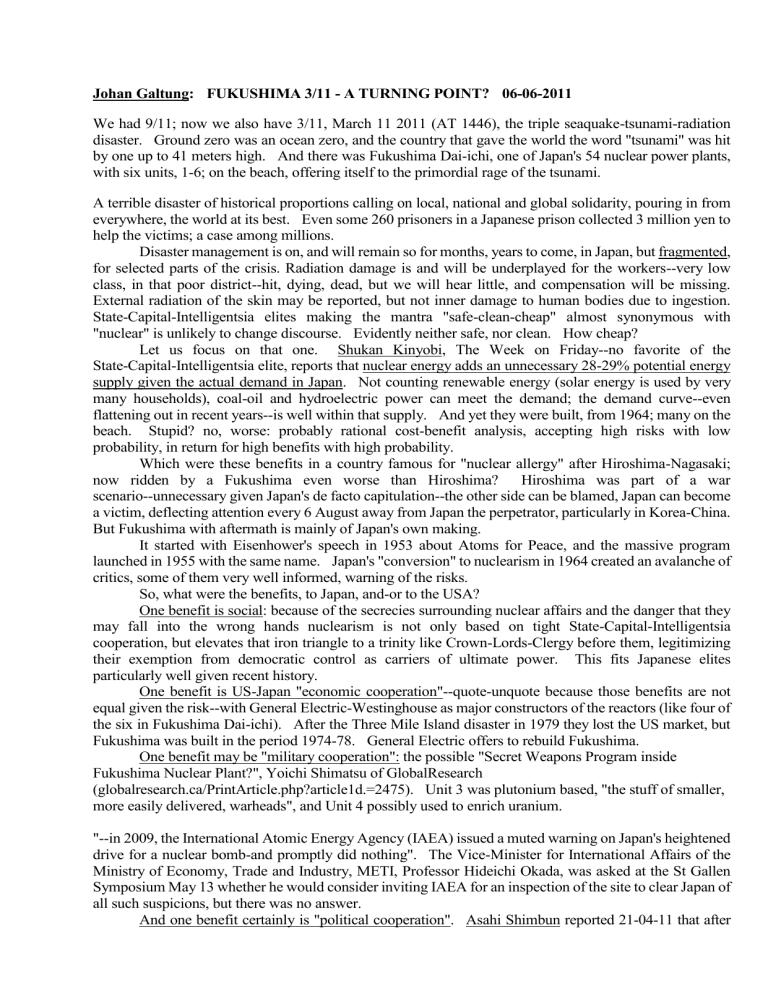
Johan Galtung: FUKUSHIMA 3/11 - A TURNING POINT? 06-06-2011
We had 9/11; now we also have 3/11, March 11 2011 (AT 1446), the triple seaquake-tsunami-radiation disaster. Ground zero was an ocean zero, and the country that gave the world the word "tsunami" was hit by one up to 41 meters high. And there was Fukushima Dai-ichi, one of Japan's 54 nuclear power plants, with six units, 1-6; on the beach, offering itself to the primordial rage of the tsunami.
A terrible disaster of historical proportions calling on local, national and global solidarity, pouring in from everywhere, the world at its best. Even some 260 prisoners in a Japanese prison collected 3 million yen to help the victims; a case among millions.
Disaster management is on, and will remain so for months, years to come, in Japan, but fragmented, for selected parts of the crisis. Radiation damage is and will be underplayed for the workers--very low class, in that poor district--hit, dying, dead, but we will hear little, and compensation will be missing.
External radiation of the skin may be reported, but not inner damage to human bodies due to ingestion.
State-Capital-Intelligentsia elites making the mantra "safe-clean-cheap" almost synonymous with
"nuclear" is unlikely to change discourse. Evidently neither safe, nor clean. How cheap?
Let us focus on that one. Shukan Kinyobi, The Week on Friday--no favorite of the
State-Capital-Intelligentsia elite, reports that nuclear energy adds an unnecessary 28-29% potential energy supply given the actual demand in Japan. Not counting renewable energy (solar energy is used by very many households), coal-oil and hydroelectric power can meet the demand; the demand curve--even flattening out in recent years--is well within that supply. And yet they were built, from 1964; many on the beach. Stupid? no, worse: probably rational cost-benefit analysis, accepting high risks with low probability, in return for high benefits with high probability.
Which were these benefits in a country famous for "nuclear allergy" after Hiroshima-Nagasaki; now ridden by a Fukushima even worse than Hiroshima? Hiroshima was part of a war scenario--unnecessary given Japan's de facto capitulation--the other side can be blamed, Japan can become a victim, deflecting attention every 6 August away from Japan the perpetrator, particularly in Korea-China.
But Fukushima with aftermath is mainly of Japan's own making.
It started with Eisenhower's speech in 1953 about Atoms for Peace, and the massive program launched in 1955 with the same name. Japan's "conversion" to nuclearism in 1964 created an avalanche of critics, some of them very well informed, warning of the risks.
So, what were the benefits, to Japan, and-or to the USA?
One benefit is social: because of the secrecies surrounding nuclear affairs and the danger that they may fall into the wrong hands nuclearism is not only based on tight State-Capital-Intelligentsia cooperation, but elevates that iron triangle to a trinity like Crown-Lords-Clergy before them, legitimizing their exemption from democratic control as carriers of ultimate power. This fits Japanese elites particularly well given recent history.
One benefit is US-Japan "economic cooperation"--quote-unquote because those benefits are not equal given the risk--with General Electric-Westinghouse as major constructors of the reactors (like four of the six in Fukushima Dai-ichi). After the Three Mile Island disaster in 1979 they lost the US market, but
Fukushima was built in the period 1974-78. General Electric offers to rebuild Fukushima.
One benefit may be "military cooperation": the possible "Secret Weapons Program inside
Fukushima Nuclear Plant?", Yoichi Shimatsu of GlobalResearch
(globalresearch.ca/PrintArticle.php?article1d.=2475). Unit 3 was plutonium based, "the stuff of smaller, more easily delivered, warheads", and Unit 4 possibly used to enrich uranium.
"--in 2009, the International Atomic Energy Agency (IAEA) issued a muted warning on Japan's heightened drive for a nuclear bomb-and promptly did nothing". The Vice-Minister for International Affairs of the
Ministry of Economy, Trade and Industry, METI, Professor Hideichi Okada, was asked at the St Gallen
Symposium May 13 whether he would consider inviting IAEA for an inspection of the site to clear Japan of all such suspicions, but there was no answer.
And one benefit certainly is "political cooperation". Asahi Shimbun reported 21-04-11 that after
3/11 the US government demanded that a US official be stationed in the Prime Minister's Office, and the
PM eventually accepted. Obviously for crisis management, and more particularly for communication management, given all the critical issues above. This smacks of de facto occupation of Japan.
An unnecessary source of energy pushed through by "Subsidies in Japan to silence nuclear foes"--IHT 31-05-2011, "Der Atomstaat", Der Spiegel 21/2011--under clouds of radioactivity and heavy suspicions serves as a wake-up call on top of the global warming. From Germany comes not only a NO to nuclear power, ending in 2022--with China rethinking, probably also No. 1 USA, No 2. France and No. 3
Japan in nuclear plants--but a YES to Green Energy, with China as No. 1, Germany No. 2 and USA No, 3 in investment, but Japan only as No. 11.
But a deeper wake-up call will be increasingly heard in the vibrant Japanese civil society, and gradually force a change in US-Japan relations. The economic-military-political penetration, and humiliation, will not pass unnoticed. The Japanese political body may be slow in perceiving the autonomous forces beyond Tokyo control by the PM office, METI and TEPCO, the power company. But it will come; when somebody bridges the polarization, and guides Japan both toward an East Asian
Community, and to keep good relations with the USA while the US-Japan Security System is gradually becoming marginal.
